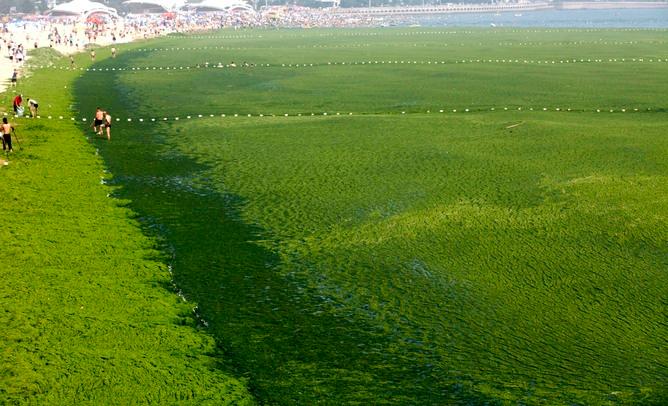The speed and scale of China’s rapid economic growth has led to widespread degradation of its densely inhabited coastlines, according to an analysis of 60 years of social, economic and environmental data.
This study, published in the Nature group journal Scientific Reports, examined historical trends in 15 different ways humans have affected coastal ecosystems, including fishing, pollution, coastal habitat transformation, and disturbance from shipping. China’s 1978 economic reforms mark a major ramping up of China’s economic development, and since then the country has rapidly shifted from an agrarian society stretched across the country’s vast interior to an industrial economy concentrated in coastal regions.
The analysis found that in all 15 measures human impact had increased over the period, and especially so after 1978. For the ten measures with data that covered the period before and after the reforms, the increase rates of six were significantly higher, four about the same, and none lower following the reforms.
Analysis of the environmental data shows that China’s coastal ecosystems have been degraded rapidly since the 1978 economic reforms. For example, across China’s seas, the diversity and body size of marine fish did not change before 1978, but both have steadily shrunk since. Harmful algal blooms have become more frequent, and generally the extent of coral reefs, mangroves and coastal wetlands have been decreasing.
The study also examined the relationships between the economic measure of GDP per capita and affects of humans upon China’s coasts. According to the environmental Kuznets curve theory, in the early stages of economic development the impact of humans increases with per capita income, but decreases when per capita income reaches a turning point. We found evidence of these turning points for some of the types of human affects we measured, but not others.
Some appeared to have just been reached, with no meaningful decreases yet in evidence, for example excess fertiliser causing algal blooms. Others are still too distant. For example, if habitat transformation for fish farming is to reach its predicted turning point, this will need considerably more coastline to be made available for fish farming – more coastline in fact than China has. And other turning points show how the impacts of human activity is shifting from richer to poorer regions, meaning the affects on the environment are not decreasing country-wide so much as merely moving around.

Intensive mariculture (fish farming) destroys coastal habiats and adds to pollution problems. (Qiang He, Author provided)
The study also shows that it is economic growth, rather than population growth, that is the major cause of the damage to China’s coasts. Perhaps because China is the world’s most populous country, it is often assumed – particularly in the west – that population pressure is the major problem. Similarly, previous studies of the impact on coastal and marine ecosystems often address the role of increased population density along coastlines.
In contrast, this study shows that the rate of population increase in China’s coastal provinces remained constant after 1978, and that including population change or population density in the analysis had little effect on the results.
The study suggests that strict conservation measures are needed to protect China’s coastal ecosystems and to sustain future growth. China’s GDP per capita remains very low, and without strict conservation efforts, as economic growth pushes per capital income up and spurs further development China’s coastal ecosystems will suffer still further.
![]()
Qiang He does not work for, consult to, own shares in or receive funding from any company or organisation that would benefit from this article, and has no relevant affiliations. This article was originally published on The Conversation. Read the original article.
